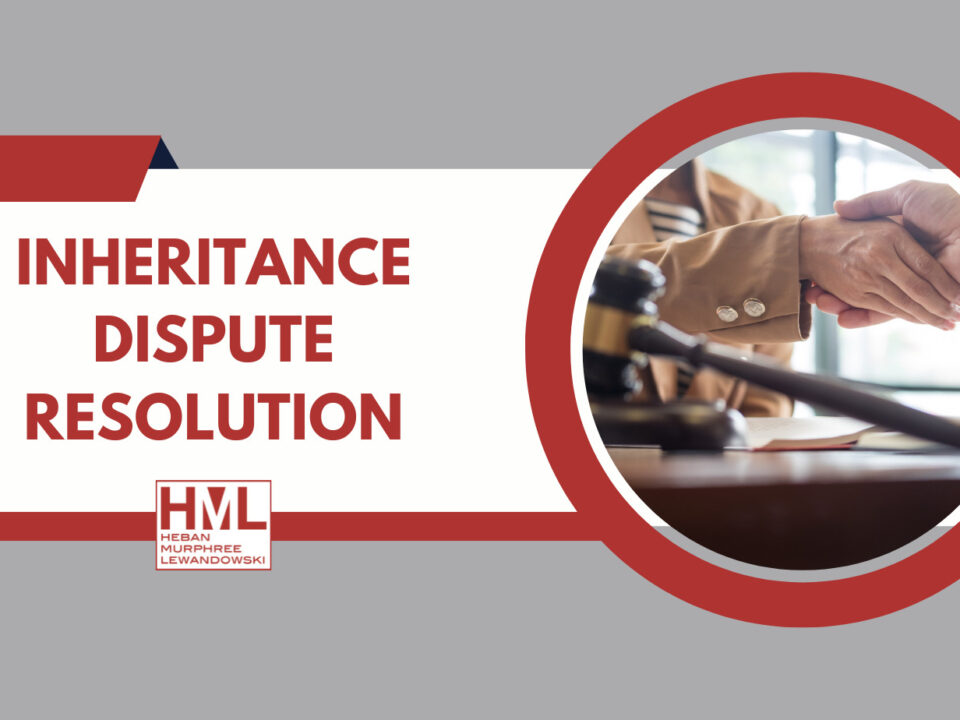- EXPERIENCED LAW FIRM IN TOLEDO, OH
- (419) 662-3100
What To Do If You Just Received an Inheritance

Family Disputes Over Inheritance – What You Need To Know
January 22, 2020
Estate Litigation Explained
February 14, 2020Guide To Inheriting Money
Receiving an inheritance can be a complex and emotional experience, especially if you are uncertain about the best way to manage it. This guide is designed to help you navigate the various decisions and considerations of inheriting assets, whether a substantial, life-changing amount or a more modest sum.
First and foremost, it’s important to take a step back and process any emotional aspects associated with the inheritance, particularly if it comes from someone close to you. Rushing into financial decisions can lead to regrettable outcomes, as seen in cases where individuals have squandered their inheritance through hasty investments or extravagant spending.
To avoid such pitfalls, seeking guidance from professionals like Heban, Murphree, and Lewandowski is advisable. Our team of seasoned estate lawyers can provide valuable insights and assist you in navigating the inheritance process with care and prudence.
Understanding Tax Implications
Inheritances often consider tax considerations, particularly when they involve sizable amounts or assets like mutual funds, stocks, and other investments in taxable accounts. The concept of a ‘stepped-up basis’ is crucial here. For example, if stocks valued at $500 at the time of the original owner’s death are sold immediately, there would be no tax liability. However, selling them later at a higher value would incur taxes on the profit. This understanding can inform strategic decisions, such as selling inherited stocks to pay off high-interest debts like credit cards or student loans or to rebalance your investment portfolio.
Real estate inheritances come with their own set of responsibilities, including ongoing maintenance, taxes, and insurance. Deciding whether to live in, rent out, or sell the inherited property is a significant decision that can impact your financial situation.
Making Wise Financial Choices
Statistics from the National Endowment for Financial Education indicate that about 70% of people who receive a large sum of money exhaust it within three years. To avoid falling into this statistic, consider the following steps:
- Seek Professional Advice: Consult a financial advisor or lawyer who can offer objective and informed guidance, focusing on your long-term financial security and retirement planning.
- Eliminate High-Interest Debt: Use the inheritance to clear out any burdensome debts, such as credit card balances, student loans, and other high-interest obligations.
- Secure Your Funds: If you’re prone to impulsive spending, consider placing your money in an account with penalties for early withdrawal. This can prevent rash decisions and preserve your inheritance for more thoughtful use.
- Plan for Retirement: Maximize contributions to your 401k and consider setting up an IRA. Investments in taxable brokerage accounts and certificates of deposit (CDs) can also bolster your retirement savings.
- Establish an Emergency Fund: Set aside an amount equivalent to six months of your salary for unforeseen financial challenges, such as job loss, home repairs, or medical expenses.
Special Considerations for Ohio Residents
If you’re an Ohio resident dealing with an inheritance, it’s important to understand the specific state laws and regulations that may affect you.
Firstly, Ohio abolished its estate tax in 2013, so you won’t have to worry about state estate taxes on your inheritance. However, federal estate taxes may still apply if the estate exceeds the federal exemption limit. Additionally, Ohio’s probate process can vary for different estate sizes. Smaller estates may benefit from simplified procedures, reducing the complexity and time involved in the probate process.
When inheriting real estate in Ohio, be mindful of local property taxes and zoning regulations. Also, Ohio’s specific laws on wills and trusts will dictate how inherited assets are distributed and managed, which is crucial to understand, particularly for trust beneficiaries.
Finally, be aware of Ohio’s Medicaid Estate Recovery Program, which may seek reimbursement from the estate of a deceased Medicaid recipient. This could impact the overall value of your inheritance.
Neel Legal Help?
If you’ve recently inherited assets and are seeking legal guidance, don’t hesitate to reach out to our team of experienced estate attorneys at Heban, Murphree, and Lewandowski for personalized assistance.
Our goal is to help you make the most of your inheritance while ensuring your financial well-being and future security.








